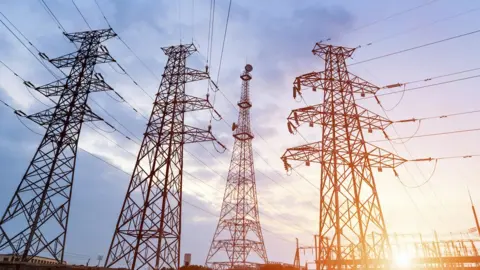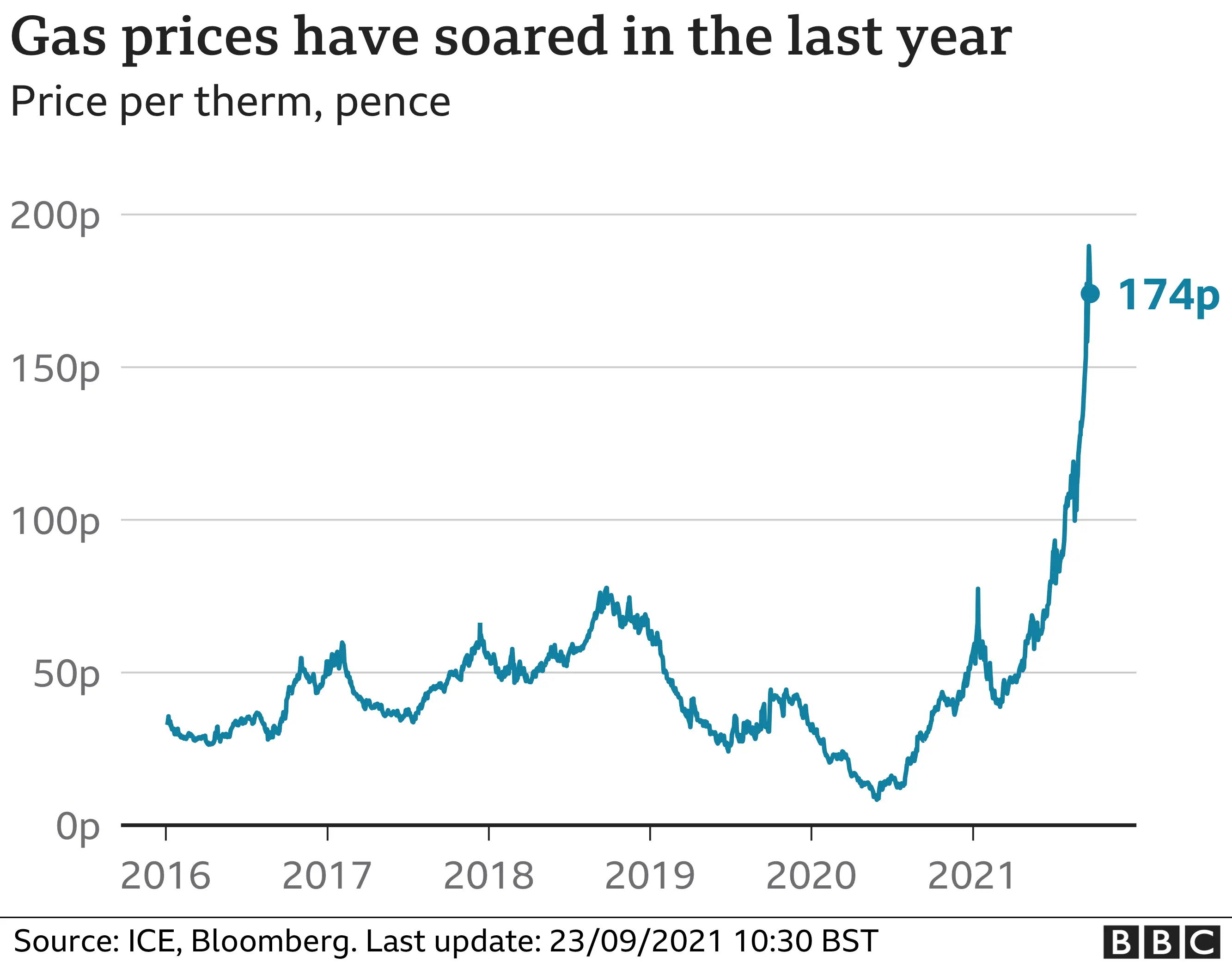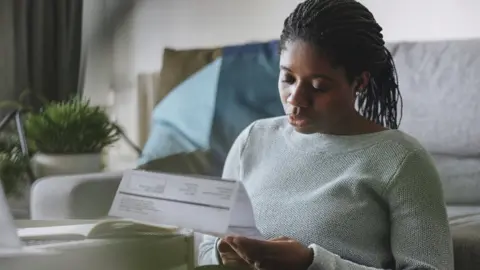What happened to Scotland's state-run energy company?
 Thinkstock
ThinkstockAs many customers face uncertainty over their household energy bills, we take a look at why plans for a state-owned energy company in Scotland fell by the wayside.
In 2017 the Scottish government pledged to set up a publicly-owned, not-for-profit company to sell gas and electricity to customers at low prices by 2021. Why has this plan not come to fruition?

How was it supposed to work?
When the plan was announced at the 2017 SNP conference in Glasgow, First Minister Nicola Sturgeon said energy would be bought wholesale or generated in Scotland - and sold to customers "as close to cost price as possible".
She said the company would not pay shareholders or corporate bonuses and that its only job would be to secure the lowest price for consumers
Ms Sturgeon added that it would give people - particularly those on low incomes - more choice of which supplier to use.
At the time, energy market firm Schneider Electric told the BBC that independent suppliers had reduced the dominance of the Big Six suppliers but they could not always beat them on price because of the way the wholesale market worked.
They said independent suppliers did well when the wholesale market fell because they were tracking the market more closely and their tariffs were more responsive - but the flip side was that when wholesale markets rose they did less well and had to increase prices.
Now, nearly 1.5 million customers have been hit in just two weeks by energy firms collapsing under soaring gas prices.
Has the government scrapped the plan?
Not in so many words.
In their 2021 manifesto, the SNP said that work on the public energy company had been "halted" during the pandemic, and efforts were being "refocused" on a public energy agency.
It said the agency would "coordinate and accelerate" the delivery of heat and energy efficiency work as well as "informing and educating" the public on required changes.
There have been fresh calls to revive the plan by SNP activists, but when asked if the Scottish government had dropped it altogether, Energy Secretary Michael Matheson said the party "had not anticipated" as great a need for decarbonisation in 2017.
He told the BBC's Good Morning Scotland programme: "The reality is a public energy company will not resolve what are very serious systemic problems in the UK energy network and the UK energy system that the UK government have failed to address over many decades.
"There's been a significant change in both the market and what we now need to do to meet our climate change targets."
Rather than having a state-owned company, Mr Matheson said the Scottish government hoped to move to a model based on district heating - taking heat energy from a number of different sources and passing it to consumers through insulated pipes.
He said this would help meet the target of decarbonising the heating of more than one million homes and 50,000 businesses.
What is happening to independent energy companies?
A worldwide squeeze on gas and energy supplies has now pushed up gas prices in the UK, Europe and Asia. Since January, they have risen 250% and prices have soared 70% from August alone.
Outside the Bix Six energy companies, firms are struggling and some have already folded.
Most recently Avro Energy and Green ceased trading on Wednesday and their 830,000 combined customers face being switched to a new, potentially more expensive, provider.
Earlier this month Edinburgh-based People's Energy, which supplies gas and electricity to about 350,000 homes and 1,000 businesses, also ceased trading.
The government has said it is considering offering emergency state-backed loans to surviving energy companies to encourage them to take on customers from bust firms.

Founder and CEO of Green Energy Peter McGirr said the decision to close was not because they did not have enough money in the bank, but because of "a number of extra pressures" as a result of the pandemic.
These pressures, he said, include people not paying bills due to financial issues, extended payment holidays for bills and additional demand due to people being at home during lockdown.
He said: "If you start lending money out and you have no mechanism to recover that, that is going to put your business under financial pressure.
"We could see this future event - this winter - which we couldn't make it through due to a cash flow shortage. We've been aware of this for several months, yet we talk about this gas crisis as if it's came about in the last week or two."
 Getty Images
Getty ImagesMr McGirr also predicted about 30 smaller companies would also cease trading due to pressure over the winter - a fate he believes could have been avoided with financial support from the UK government, as CO2 supplier CF Industries has received.
"I don't see why the government has chosen to put £50m into a fertiliser plant for CO2," he said. "We'd still have food on the shelves.
"We might not have had meat, we might not have had some bubbles in our lemonade, but here and now if the shelves were empty that would look bad.
"But how is it going to look over winter when people cannot heat their homes, when come 1 April we increase people's bills by hundreds of pounds and people cannot afford to heat their homes?"
